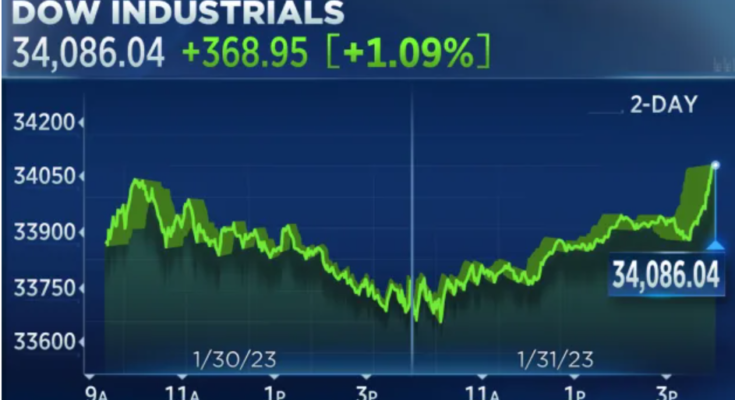The Dow Jones Industrial Average (DJIA), commonly referred to as the Dow Jones, is a prominent stock market index that tracks 30 large, publicly-owned blue-chip companies trading on the New York Stock Exchange (NYSE) and Nasdaq. As one of the oldest and most widely followed equity indices, the DJIA serves as a barometer for the overall health of the U.S. economy. Today, the Dow Jones continues to be a critical indicator for investors and market watchers, reflecting the performance and trends of major industrial sectors.
Importance of tracking the Dow Jones for investors and marketers
Tracking the Dow Jones today is crucial for investors and market watchers as it provides real-time insights into the performance of some of the largest and most influential companies in the U.S. economy. The DJIA serves as a key indicator of market trends and economic health, reflecting investor sentiment and potential shifts in the market. By monitoring the Dow Jones, investors can make informed decisions about buying, selling, or holding stocks, while market analysts can gauge the impact of economic events, corporate earnings, and geopolitical developments. Staying updated with the Dow Jones today helps in identifying opportunities and risks, ensuring that investment strategies are aligned with current market conditions.
Purpose of the article
The purpose of this article is to provide daily updates on the Dow Jones Industrial Average (DJIA), offering readers timely and accurate information on the index’s performance. By delivering the latest values, percentage changes, and key market movements, the article aims to keep investors and market enthusiasts well-informed about the current state of the Dow Jones. This daily update serves as a valuable resource for making informed investment decisions, understanding market trends, and staying ahead of economic developments that impact the financial markets. Whether you’re a seasoned investor or a casual market watcher, these updates will help you navigate the complexities of the stock market with confidence.
What is the Dow Jones Industrial Average?
Definition and history of the DJIA
The Dow Jones Industrial Average (DJIA), often referred to as the Dow Jones, is a stock market index that tracks 30 large, publicly-owned blue-chip companies trading on the New York Stock Exchange (NYSE) and Nasdaq. Created by Charles Dow and Edward Jones in 1896, the DJIA was designed to serve as a proxy for the broader U.S. economy. Initially composed of 12 industrial companies, the index has evolved over time to include a diverse range of sectors. As one of the oldest and most widely followed equity indices, the DJIA remains a key indicator of market performance and economic health.
Explanation of how the DJIA is calculated
The Dow Jones Industrial Average (DJIA) is a price-weighted index that tracks 30 large, publicly traded companies in the U.S. To calculate the DJIA, the sum of the stock prices of these 30 companies is divided by a value known as the “Dow divisor.” This divisor is adjusted for stock splits, dividends, and changes in the index’s composition to maintain consistency over time
References:
- https://www.investopedia.com/articles/investing/082714/what-dow-means-and-why-we-calculate-it-way-we-do.asp
- https://www.thoughtco.com/intro-to-the-dow-jones-industrial-average-1146323.
Importance of the DJIA in the financial markets
The Dow Jones Industrial Average (DJIA) holds significant importance in the financial markets as it serves as a key benchmark for the performance of the U.S. stock market and the broader economy. As a barometer of market sentiment, the DJIA reflects the health and trends of major industrial sectors, influencing investor confidence and decision-making. Its movements are closely watched by investors, analysts, and policymakers to gauge economic conditions, assess market trends, and make informed financial decisions. The DJIA’s role as a leading indicator makes it an essential tool for understanding market dynamics and predicting future economic activity.
















